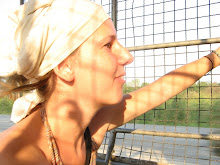Regardless of the slogans used by all sides (government, political opposition groups or even the Mae Tao clinic in Mae Sot) stating to be United in Diversity, I noticed a strong emphasis on differences in ethnic background and religion coinciding unfortunately with a lot of strong statements and judgements.
Discrimination seems to run through all levels of the society. Karen government teachers gave up their jobs facing unfair lack of any chance to be promoted compared to their colleagues. A Muslim man with his five year old son tells me he is a retired government official. I later read that the members of the Muslim minority are excluded from living and working in the new capital Naypyidaw, literally meaning royal bellies. Also in Yangon the few Muslim schools can only be found at the outskirts. My trishaw driver in Mandalay described a job interview as starting (and ending) with the question about the profession of his father. And the bilingual (Burmese/Chinese) schools in Myanmar only allow Chinese descendants. Of course the biggest difference remains between those who have money and those who don't, between those who wear the uniform and those who don't.
Many people in Myanmar feel very inferior but similarly always seem to find another group to pity and speak bad about. Being shy is considered (teached) to be polite and asking questions is discouraged. In an environment where one is socially and brutally oppressed from expressing ones opinion and feelings or where being different and breaking social codes, traditions or norms is not accepted, the toughest struggle is not the one for food but the internal one. Dreams, hopes and traumas are kept in mind and hearts.
Other struggles take place within an among the many opposition groups. Some are without doubt aroused by the SPDC in the framework of its divide and rule policy inherited from the British. These struggles however are far less secret than the internal distrust existing within the SPDC. The biggest and by some also expressed as the only hope for the people is exactly a fatal or self-destroying split in the army. The dictator himself Than Shwe is over seventy and very ill. Other top leaders are already fighting among each who will take over. Signs of fear and disagreement were also visible when three years ago they put the former prime minister who was a bit too progressive under house arrest. While the top of the military is losing its unity due to greed and mismanagement, simple soldiers go through hardships that might soon be too much for them. Most of them did not become a soldier out of free will. My trishaw-driver in Mandalay told me how the soldiers approach young village boys upon arrival to the city , mostly in search of work, with two choices: the army or prison. Family would find out maybe three years later what happened to their son. Once in the army one cant leave legally without passing through prison for at least three years. Soldiers farm, sleep in houses sometimes worse then those in the refugee camps and don't have great food or equipment. But they do have guns and are still better off than many of their fellow countrymen. The recent atrocities against the monks were also intolerable for many Buddhist soldiers and increased oppressed anger. Some escape while for example five soldiers recently choose the camp of an armed opposition group, the KNU (Karen National Union), due to injustice among the soldiers.
Thursday, April 3, 2008
Subscribe to:
Post Comments (Atom)


No comments:
Post a Comment